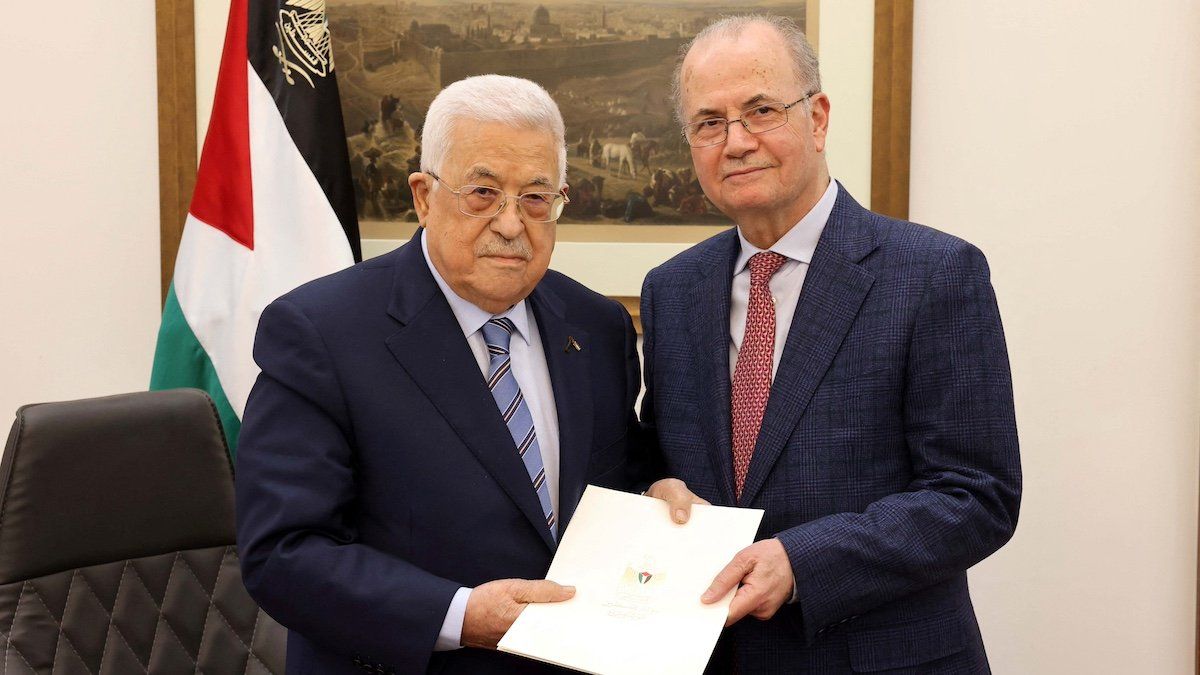Mahmoud Abbas, the 88-year-old president of the widely unpopular Palestinian Authority, on Thursday named Muhammad Mustafa as the authority’s prime minister. Given Abbas’s age, and the need for a successor as leader of the PA who can offer some credible alternative to Hamas as the political voice of Palestinians, Mustafa will now become the subject of wide international scrutiny.
So, who is he? Mustafa is a trained economist with a degree from George Washington University in Washington, DC. His current job is head of the Palestine Investment Fund, the Palestinian Territories’ sovereign development fund. He has also served as the PA’s economy minister and deputy prime minister.
More to the point, Mustafa is a longtime PA insider who owes his career and standing to Abbas. For those hoping the aging president would choose a dynamic, independent-minded leader as PM who might lead in a bold new direction, Mustafa is an unpopular choice – one that signals Abbas intends to remain the dominant voice in the PA for as long as he can.
